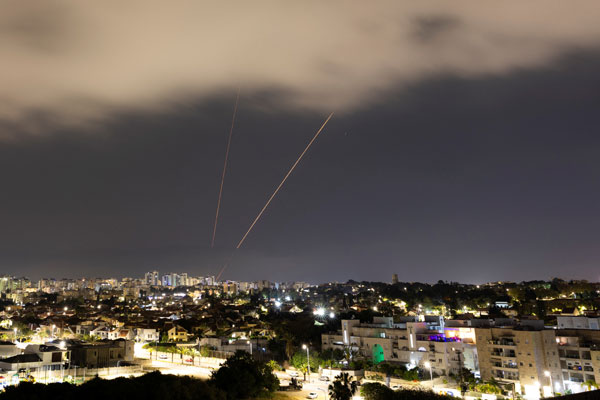Filling in the Gaps — Towards a System of International Justice

Kenya’s sitting president Uhuru Kenyatta (right) appears before the International Criminal Court in The Hague, on October 8, 2014. Kenya’s Uhuru Kenyatta on October 8, 2014 became the first sitting president to appear before the International Criminal Court where he has been charged with crimes against humanity. PHOTO | | FILE
What a year it has been for the International Criminal Court (ICC) and its relationship with African states. Just over twelve months ago, three states — South Africa, Burundi, and The Gambia — signalled their intention to withdraw from the ICC. Following wrangling over the procedural legality of a withdrawal in South Africa and the stunning collapse of Yahya Jammeh’s 22 year-long rule over The Gambia, today Burundi stands alone as the only state to withdraw from the Court. But challenges remain and much more needs to be done to improve access to justice for victims and survivors of atrocity crimes across the continent.
Now, a decade and a half after the ICC became a functioning reality expectations of what it might deliver haven’t been met; the demand for justice and accountability sadly overshadows its supply. But the fight for justice for international crimes must go on. Today, it is showing signs of maturity and improvement. The ICC can’t do it alone — and it shouldn’t have to.
There should be no confusion: the ICC is an institution worthy of global support. It has had its shortcomings, of that there is no doubt. But the Court remains a focal point for providing justice and accountability for mass atrocities when states are unable or unwilling to do so themselves. As members of the Africa Group for Justice and Accountability (AGJA), we have regularly highlighted that every investigation opened by the ICC on the African continent warranted such action by the Court.
Today, there are also welcome signs that the ICC is expanding its gaze beyond the continent, to situations desperately in need of accountability. They hold the potential to speak law to power and to help combat perceptions that international criminal justice is selective.
Contrary to what its critics claim, the problem with the ICC isn’t that it is too active but that, in many cases, it is too inactive — or absent altogether. That may soon change. The ICC’s Chief Prosecutor is seeking an investigation into Afghanistan, which includes alleged crimes perpetrated by U.S. forces and the C.I.A. This decision marks the first time that any tribunal has directly confronted war crimes allegedly perpetrated by U.S. officials. In the cases of Iraq, the ICC is examining whether British citizens have committed crimes under the Rome Statute. In Ukraine and Georgia, alleged crimes by Russian forces are under scrutiny. These are unprecedented times. The reach of international justice is expanding.
We regularly hear the criticism of justice being too slow. We understand those who point out that the ICC has only issued three public arrest warrants for international crimes since 2012. But there is no perfect pace for justice. The pioneering and successful trial and conviction of former Chadian President Hissène Habré came over two decades after he fled N’Djamena for refuge in Senegal. Of course, justice delayed is justice denied. But the solution to speedy justice is to foster other institutions capable of filling in the gaps and pushing the project of international criminal justice forward.
The impact of international criminal justice has also been undermined by the lack of cooperation from members of the international community, particularly with the execution of arrest warrants. The absence of support from the United Nations Security Council, particularly in situations the Council refers to the ICC, hampers the work of the Court. The AGJA continues to work with member-states and the ICC to bridge the gap, understanding that international criminal justice must have the support of states to be successful.
But the ICC is not the only game in town — and it needn’t be. Recent years have witnessed a growing interest in creating so-called hybrid tribunals to address international crimes. Such courts were in fashion in the early and mid-2000s and have seen something of a re-birth since 2014. Hybrid-type tribunals have been created to investigate atrocities in the Central African Republic (CAR) and Kosovo, to prosecute those responsible for the downing of Malaysian flight MH17, and for the crimes of Hissène Habré. Others have been proposed for Sri Lanka, South Sudan, and Syria. In the CAR, the Special Criminal Court is poised to work in a complementary fashion to the ICC’s ongoing investigations in the country. In the other situations where hybrids may be created, the ICC lacks jurisdiction. These proposed tribunals thus hold the potential to go where the ICC cannot. In some cases, they will be able to deliver justice much closer to where victims, survivors and affected communities live.
Other states continue to build capacity to address international crimes domestically, by strengthening their own judiciaries’ ability to do so. In line with the view that the future of international criminal justice is domestic and that the principle of complementarity is the bedrock of global accountability, the Africa Group for Justice and Accountability has dedicated itself to capacity-building initiatives for investigators, prosecutors and judges. It has been active in this regard in Nigeria, CAR, The Gambia, Kenya, Uganda, Rwanda, and Tanzania.
Challenges remain. The international community has exhibited a finite interest in international criminal justice. Nowhere is this more evident than in the resources states are willing to provide for the courts and tribunals they set up. Moreover, there is a need to avoid duplicating the shortcomings of previous institutions.
To do so, the AGJA is working closely with a project to create guidelines on the establishment of hybrid courts. Properly resourced and armed with the lessons of their predecessors, the promise of such institutions cannot be over-estimated: the delivery of timely, visible, and effective justice for victims and survivors of international crimes.
There is more agreement today than ever on the urgency of constructive engagement between the ICC and African states. The ultimate aim of the project of international criminal justice is to create a system of global accountability, one where atrocities are met with a coherent and effective response. Moving the ball forward means understanding past shortcomings in order to improve the institutions at work today. It means filling in the gaps.
Africa Group for Justice and Accountability; Website: www.wayamo.com; Email: [email protected]




